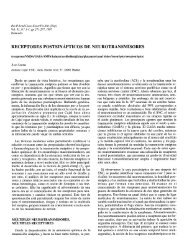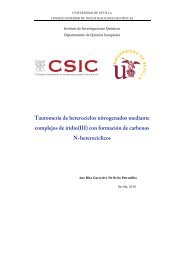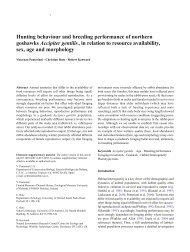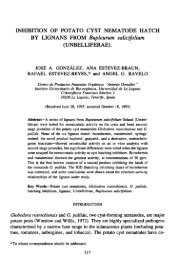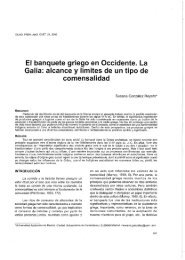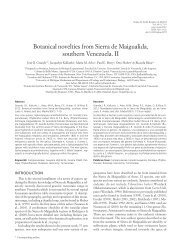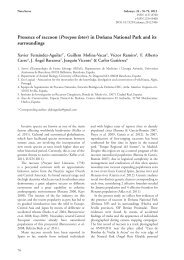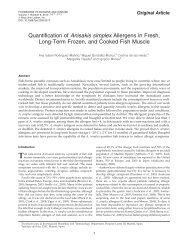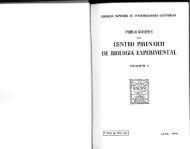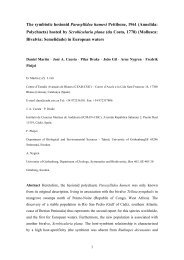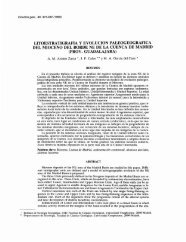PhD Thesis MJProl .pdf - digital-csic Digital CSIC - Consejo Superior ...
PhD Thesis MJProl .pdf - digital-csic Digital CSIC - Consejo Superior ...
PhD Thesis MJProl .pdf - digital-csic Digital CSIC - Consejo Superior ...
You also want an ePaper? Increase the reach of your titles
YUMPU automatically turns print PDFs into web optimized ePapers that Google loves.
New strategies for the control of bacterial infections in marine fish larval rearing 15<br />
1.2.1.3. Inhibiting or inactivating detrimental bacteria in the system<br />
• Bacteriophages<br />
Bacteriophages are virus particles that infect bacteria. In nature, it has been<br />
suggested that bacteriophages are one of the main causes of mortalities in bacterial<br />
populations. The principle in the use of bacteriophages in aquaculture is their<br />
application for the control of bacterial diseases (Imbeault et al., 2006; Park et al., 2000).<br />
The advantage of such strategy is the avoidance of antibiotics use and other therapeutic<br />
agents. The drawback of this approach is that the ability of bacteriophages to reduce<br />
numbers of bacteria is characterized of high specificity. Production of virus particles<br />
specific for the pathogenic bacterial strains in question is therefore required at each<br />
time. In addition, resistance to bacteriophages is quickly developed after a relatively<br />
short period of time due to short generation time of bacteria.<br />
The advantages of bacteriophage therapy against pathogenic bacteria are the<br />
following:<br />
i) The high specificity results in protection of intestinal microbiota.<br />
ii) The ability of propagation. Once susceptible bacteria are present in the fish,<br />
then few additions of bacteriophage may be sufficient for protection against<br />
pathogens (Nakai and Park, 2002).<br />
There is a limited application, however, as mortalities in larviculture are seldom<br />
attributed to specific pathogens. In a specific hatchery however, it can occur that<br />
problems with mortalities in larvae rearing tanks are related to specific pathogens, so in<br />
such cases a tailor-made solution with bacteriophage therapy could be an alternative<br />
solution. Bacteriophages have shown encouraging results in the case of protection of<br />
shrimp larvae against Vibrio harveyi (Karunasagar et al., 2007).<br />
• Interference with Quorum Sensing<br />
Quorum Sensing (QS) is a mechanism by which bacteria coordinate the<br />
expression of certain genes in response to their population density by producing,<br />
releasing and detecting small signal molecules, inducing a physiological response which



